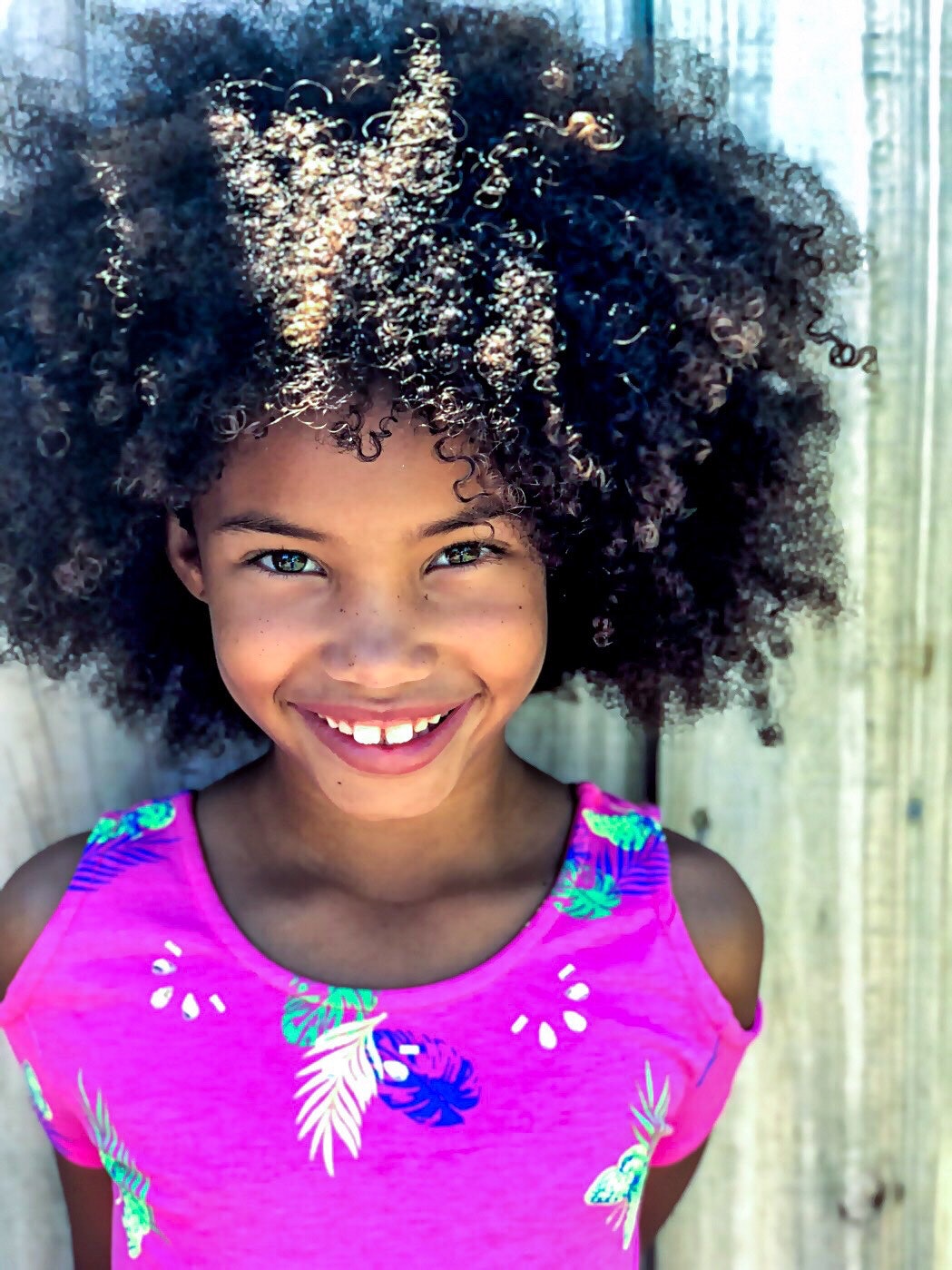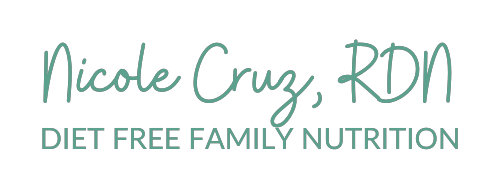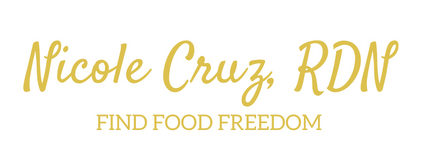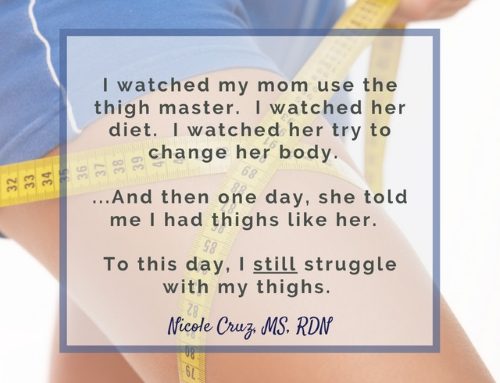Continued from my post last week, today I want to share five ways you can help your child develop a positive body image.

As I mentioned before, there are so many ways we can inadvertently contribute to our children forming a negative body image. I’m certainly not blaming you for your child struggling with body image; there are multiple factors at play. Body image is complex and is influenced by internal (within each individual) and environmental (family and society as a whole) components.
Even though we have our child’s best interest at heart, sometimes unintentional or even well-meaning actions go awry. For more on this, check out Negative Body Image and Your Child.
My mom unintentionally influenced my body image.
My mom struggled with her own body image and I watched her diet and try to shrink herself from a young age, along with making a seemingly innocent comment toward my body.
These things aren’t the only reason I struggled to develop a positive body image. I have a predisposition toward perfectionist thinking and was also looking for a sense of control (i.e. tried to focus on controlling my body) when my life felt uncertain and out of control. In simple terms. It was the perfect storm.
Now, I know that’s not your intention, and you want to do the best for your child, so read through the following.
Ways You Can Help Foster Positive Body Image
Talk Positively (or Neutrally) About Your Own Body
You don’t have to gush over yourself, but you can promote body acceptance and focus on the amazing functions your body can perform. You might say, “I’m so grateful my legs allow me to go on our bike rides together. I love we get to spend that time together.” This might even help you with your own body image.
Focus on Attributes Other Than Appearance
I hear family members constantly walk up to my daughter and lead with, “Pretty girl”. I know it’s meant to be complementary, and I know it’s kind-hearted and well-meaning. However, when it’s consistent and the first comment, it emphasizes that appearance is something to be valued and that it’s the most important attribute. Instead, try to comment on other qualities: kindness, humor, generosity, spirit, strength, courage…
You might say:
-
- It’s great to see you!
- You have a beautiful soul.
- You have a loving heart.
- Your sense of humor makes me laugh.
- Seeing you brightens my day.
- I smile when I see your smile.
- You give the best hugs.
Find Positive Role Models in Larger Bodies
We often see people in larger bodies trying to shrink themselves, being portrayed as caricatures, or serving as the butt of jokes. We rarely, if ever, see larger folks shown as strong, confident, and able. Seek out stories of bigger-bodied individuals who have done amazing things. Find them on social media unapologetically taking up space and not trying to change. Look at their pictures. Get comfortable with all body sizes. As for social media, there are so many amazing accounts, for now I will offer a few you might follow:
-
- Megan Jayne Crabbe, bodyposipanda
- Jes Baker, themilitantbaker
- Anna OBrien, glitterandlazers
- Aaron Flores, aaronfloresrdn
- Ragen Chastain, ragenchastain
- Virgie Tovar, virgietovar
- Michelle Elman, scarrednotscared
- Ashlee Bennett, bodyimage_therapist
- Kristina Bruce, kristinabruce_coach
- Colleen Werner, colleenmwerner
Teach About Body Diversity
When your child comments on different body sizes, instead of saying, “be nice” or “they’re not fat,” teach that bodies come in all sizes and all bodies are good bodies. If your child calls themself fat or says someone else did, ask questions, and educate them about diversity. Avoid using statements that create a judgment. Teach that fat is a description just like thin; it doesn’t mean something bad.
Allow Your Child to Eat the Amount of Food They Choose
The model of feeding I recommend subscribing to is called the Division of Responsibility by Ellyn Satter. You can read more about that HERE. Your job as a parent is to provide a variety of food for your child consistently. You decide the what, when, and where of feeding and your child decides how much to eat from what you provide. In this model, you are instilling body trust in your child. You are trusting them to eat as much as they need and trusting their body to take care of the food. When we control portions, we inadvertently say: Your body is wrong. It needs to be controlled. You can’t be trusted.
For more on ways you might contribute to a negative body image, check out this post:



Leave A Comment